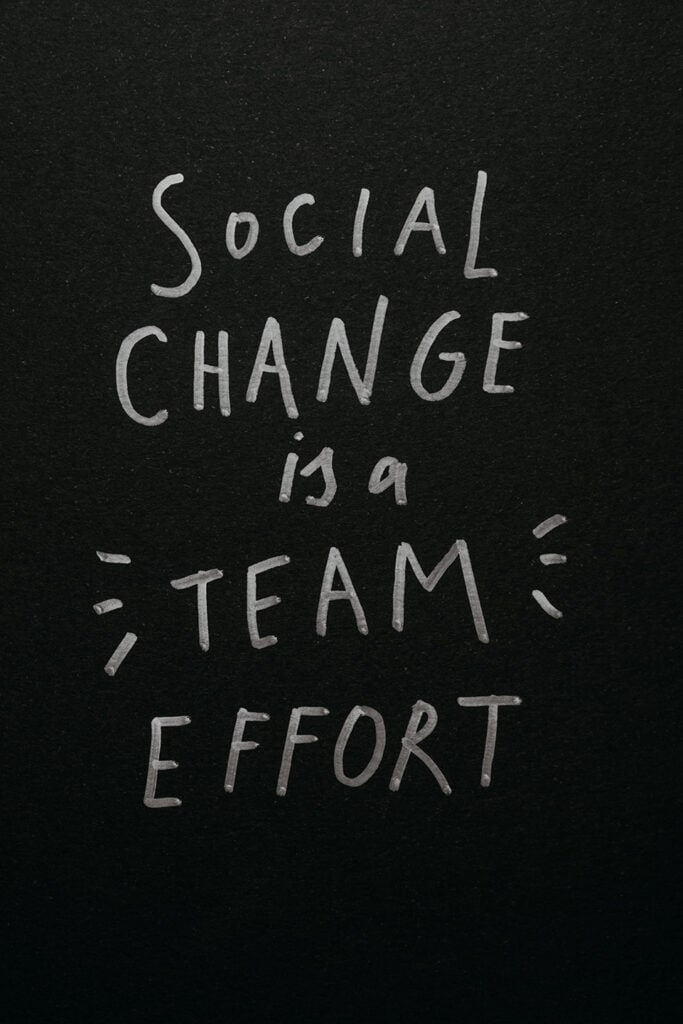
Are you aware of the powerful influence of social norms on our behaviors and communities? The social responsibility norm is a guiding principle that encourages individuals to act with compassion and a sense of duty towards others, especially those in need.
In this article, we explore 5 essence of the social responsibility norm, exploring its origins, key aspects, and importance in building stronger communities.
We’ll examine how this norm shapes our values, influences behavior, and promotes a culture of kindness and support.
After reading this article, you’ll gain a deeper understanding of how having social responsibility can lead to a more empathetic and cooperative society.
Let’s explore how each of us can make a difference!
1. What is the Social Responsibility Norm?

The social responsibility norm is a rule that guides how people should act in society. It means individuals feel a duty to help others, especially when they are in need.
This norm encourages people to go beyond their self-interest and contribute to the well-being of their community.
Responsibilities like helping a neighbor or supporting a cause reflect the best personal values. It’s based on the belief that, when everyone contributes, society becomes stronger.
Whether it’s volunteering or supporting those less fortunate, the social responsibility norm promotes positive actions that benefit both individuals and the community. This norm is key to building trust and cooperation.
See also 15 Questions To Discover Your Life Purpose: A Guide to Self-Discovery
2. Origins of the Social Responsibility Norm

The social responsibility norm has its origins in the idea that people should help others, especially those in need. It is rooted in ancient traditions, religious teachings, and early community values.
- In ancient societies, helping others was seen as a duty.
- Religions like Christianity and Buddhism teach compassion and charity.
- Modern social structures have formalized this into laws and expectations.
This norm is key in maintaining social harmony and helping communities grow. It encourages kindness and empathy. As quotes about values highlight, it promotes a strong sense of duty and care for others, reminding us that values like generosity and responsibility guide us to live better lives.
3. Key Aspects of the Social Responsibility Norm

The social responsibility norm refers to the expectation that individuals will help others in need, especially those who are dependent or vulnerable, even when it comes at a personal cost. It is a social principle guiding behavior in communities and societies.
Here’s a list of key aspects of the social responsibility norm:
- Helping behavior: Encourages people to assist others in need.
- Altruism: Focuses on selfless acts for the well-being of others.
- Moral obligation: Suggests that people have a duty to help those less fortunate.
- Reciprocity: Implies that helping others builds social bonds and creates mutual support systems.
- Cultural variation: Norms may differ based on societal or cultural context.
- Voluntary action: Encourages helping without expecting anything in return.
- Social cohesion: Strengthens community ties and trust among members.
4. Importance of Social Responsibility Norm

The social responsibility norm encourages individuals and businesses to help others in need. It creates a sense of duty toward the community, which strengthens social bonds. Promoting acts like raising money for charity, it supports those in need and helps a more compassionate society.
Here are 8 benefits of social responsibility norms:
- Builds Stronger Communities: Encourages collective efforts for community well-being.
- Promotes Empathy: Fosters understanding and care for others.
- Encourages Charity: Inspires individuals to raise money for charity and support causes.
- Strengthens Social Bonds: Enhances connections among people and groups.
- Improves Public Image: Positive actions boost the reputations of individuals and businesses.
- Fosters Cooperation: Encourages teamwork for societal benefit.
- Creates Positive Impact: Contributes to a better, more supportive society.
- Supports Those in Need: Directly helps people facing challenges or hardships.
5. Key Points of Social Responsibility Norm

- Cultural Expectation: The belief that individuals should help others who need assistance.
- Moral Obligation: Encourages people to act in the best interest of society.
- Altruistic Behavior: Supports selfless acts, such as helping strangers.
- Community Support: Fosters a sense of responsibility toward vulnerable groups.
- Legal and Ethical Influence: Shapes laws and guidelines in businesses and organizations.
- Volunteering: Motivates participation in community service and charitable efforts.
- Environmental Responsibility: Encourages protecting and sustaining natural resources.
- Corporate Social Responsibility (CSR): Businesses are encouraged to give back to the community.
- Global Impact: Helps address worldwide issues like poverty and climate change.
- Mutual Aid: Promotes the idea of helping others in exchange for potential future support.
This highlights how social responsibility norms affect individual actions and society as a whole.
See also What are Family Bonding Quotes? 50 Heartwarming Messages to Celebrate Family
Social Responsibility Norm: A Recap
Social responsibility norms encourage people to contribute positively to society. They promote actions that help others and create a better world. Books about charity can inspire individuals to give back.
However, it is essential to avoid toxic charity, which can harm communities rather than help them. Understanding the 5 types of charity can guide effective giving. These types include financial aid, volunteer work, in-kind donations, advocacy, and community building.
By supporting the right initiatives, individuals can make a significant impact. Social responsibility norms remind us that we all have a role to play. Together, we can help a culture of caring, making our communities stronger and more connected.


